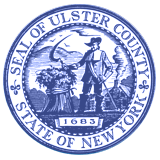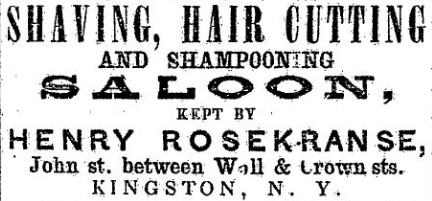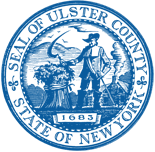Celebrating Black History Month
Henry C. Rosecranse Jr. - Kingston's Ball-Playing Barber
In celebration of Black History Month, the Ulster County Clerk’s Office presents an online version of the first installment in its “Historical Profiles” series. This exhibit focuses on Kingston’s ball-playing barber, Henry C. Rosecranse, also known as Henry Rosecranse Columbus Junior. Born an enslaved person, Henry gained his freedom on July 4th, 1827 after the New York State Gradual Emancipation Act of 1799 and the 1817 act that expanded it.
Henry was born between 1808 and 1810 at the Kingston Coffee House on Crown Street (later the Kingston Hotel). The Coffee House was owned by Levi Johnston who Henry worked for as a youth. Henry’s uncle, Henry Columbus, owned a barber shop on John Street until the 1810’s. Rosecranse set himself to follow these footsteps in the 1830’s and for about 50 years ran his own barbershop where he provided services like cutting hair, shaving, warm and cold baths, and others.
Being an African American business owner who later owned the land his shop was on was an amazing achievement for the time. In 1881, the Kingston Daily Freeman published an article about Rosecranse including an extensive interview. In it, Rosecranse talked about the older days and how things had changed over the past 50 years. He reveled about Pinkster (a Dutch holiday that became a celebration for African Americans) and how he used to play baseball. When asked by the reporter, “Was it base ball as now played?” he elaborated on the game stating, “Something like it, only the ball wasn’t near so hard, and we used to have much more fun playing.” This makes Rosecranse one of the first documented African Americans to play baseball in the United States according to Official MLB Historian John Thorn.
As time went on, Rosecranse’s role in Kingston’s society sadly faded, but now he is rediscovered and once again put into the spotlight. He served as a community leader, a business owner who took great pride in his work, and an early adopter of a game now known as “the national pastime.”


